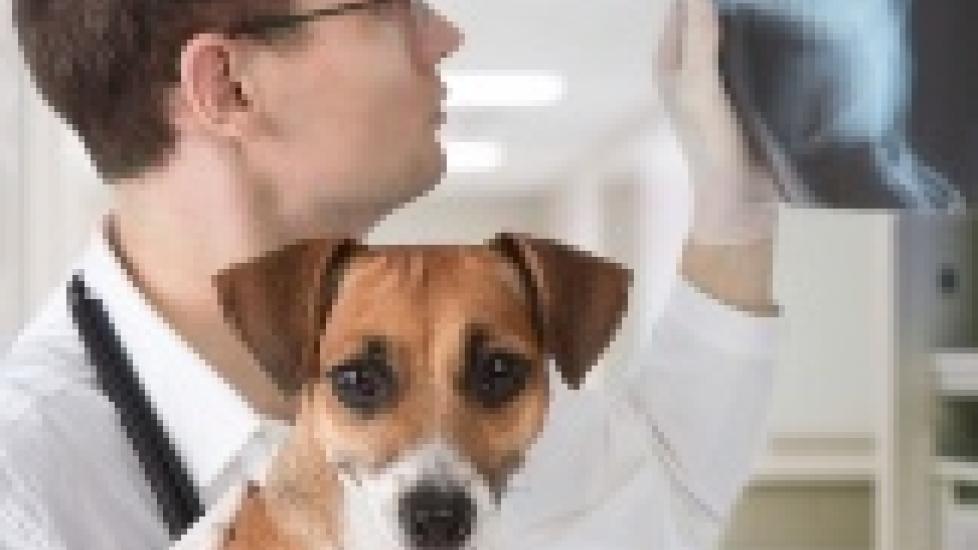Why Repeating Pet's Diagnostic Tests is Important for Lifesaving Cancer Treatment
It’s unusual for me to see a new consult where absolutely no prior diagnostics were performed. In fact, cases where cancer is suspected, but not actually proven are those with the greatest number of previous tests, including blood work, radiographs, ultrasounds, aspirates, and even biopsies.
Sometimes I see cases where diagnostics were run, but I strongly feel we should recheck the results, repeat the test in question, or run a very similar test that may provide additional information. It’s difficult to explain to a caretaker why I think this is in their pet’s best interests without being perceived that I am simply looking to spend more of their money.
Even when owners comprehend the logic behind my recommendation, they may have reached the point of simply wanting answers without "wasting time" on additional tests, especially when a definitive diagnosis was not yet achieved.
Consider a simple case of a pet diagnosed or suspected to have cancer that underwent thoracic radiographs (X-rays of the lungs) to look for spread of disease. When owners schedule an appointment with me, we request they bring the original films, copies of the films, or a CD with images on it so we can assess them ourselves (and to eliminate the need to suggest repeating diagnostics that have already been performed).
In some instances, due to miscommunication, owners arrive without the radiographs, leaving me in the awkward position of admitting that I can’t fully evaluate their pet, but can only offer opinions based on the written information provided in their medical record. This may be as helpful as an assessment of a radiologist’s report or as unhelpful as reading a referring veterinarian’s notes saying “Rads = normal.”
Some owners will bring along a CD containing the images and I will pop the disc into my computer only to find taht I am unable to open the images because of a software glitch or programming incompatibility.
Sometimes the referring veterinarian’s office will e-mail radiographs but the films are jpeg images, which cannot be enlarged or manipulated, so I am unable to adequately assess them or, in the worst case scenario, even view them as anything other than tiny pictures embedded in the message (not unlike when you receive an e-mail with a minuscule picture attached where you cannot discern any of the details).
Even when I am able to open radiographs and manipulate them, the images may not be centered in such a way that all regions of the lungs can be accurately and thoroughly evaluated, or there may be insufficient views of the chest necessary to be able to say I definitely do not see spread of the cancer.
I always explain to owners the limitations in such cases and make recommendations to perform additional radiographs where I feel it’s important, even if it means repeating the same kinds of films already performed.
I tread a fine line when I recommend repeating or rechecking tests as this may instill resentment within the primary care veterinarian (“Why is she repeating something I just did less than a week ago?”) or owner (“Why is this doctor telling me I need to spend more money on a test just performed less than a week ago?”).
With issues of testing, finances, and medicine, it can be very difficult to convey that my goal is to provide the best possible care for their pet. From my perspective, it’s also challenging to allow cynical thoughts such as, “There’s no way these owners are going to let me repeat this test …” pervade my mind.
I also want to stress to them that I am not calling into question the adeptness of the primary care veterinarian. Following the example I presented above, many circumstances are completely out of their control (e.g., me not being able to open up images on a CD), while others can be confounding but controlled (e.g., their inability to obtain ideal “pictures” due to patient compliance or time constraints).
As a tertiary referral veterinarian, I have to remember that I have the benefit of a huge amount of hindsight and am the proverbial Monday morning quarterback of the veterinary world. It’s easy for me to look back on things and say what would have been the ideal plan at that time. I always try and keep in mind that there may be dozens of other unnamed factors playing a role in the decision tree before I meet the pet.
I would urge owners to keep an open mind when they seek additional opinions for their pets and recommendations are made to repeat tests already performed. Contrary to popular belief, we are not simply looking for financial gain; rather we want to do the right thing for your pet. Take the time to listen to our suggestions and ask questions, as you may be surprised as to the logic.
I also would urge primary care veterinarians to seek consultation with specialists if they are questioning which tests to run and whether they are equipped to perform such tests in an adequate fashion so as to avoid repeat tests.
They say that in life you’re given a test that teaches you a lesson. In some cases, the lesson is the best thing to do is repeat the test.

Dr. Joanne Intile
Image: Thinkstock
